Promoting Gender Equality and Women’s Empowerment in regional SDG implementation at the 2019 Arab Forum for Sustainable Development
Date:
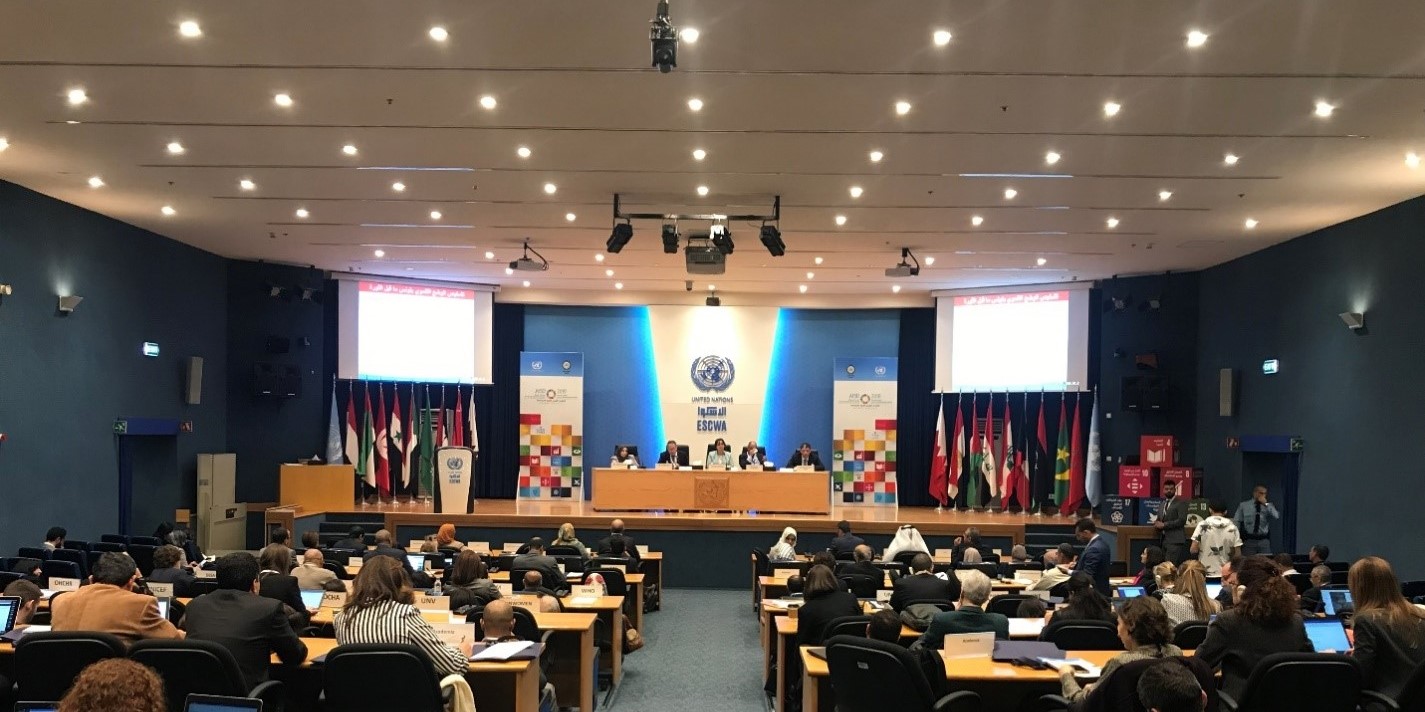
UN Women Regional Office for the Arab States worked with its sister agencies to ensure the effective integration of gender equality and women’s empowerment through regional discussions that took place during the Arab Forum for Sustainable Development (AFSD), which was convened in Beirut on 9 – 11 April 2019. The AFSD is the annual high-level regional platform where multiple stakeholders discuss coordination pathways for the implementation, follow-up and review of the 2030 Agenda for Sustainable Development in the Arab region. Convened by the United Nations Economic and Social Commission for Western Asia (ESCWA), the AFSD conveys findings and key messages from the region to the 2019 High-Level Political Forum on Sustainable Development that reviews annual global progress on SDG implementation.
During the opening plenary session, Ms. Amina J. Mohammed, Deputy Secretary-General of the United Nations, highlighted the importance of breaking barriers that hinder women from entering the labour market and noted that women are more likely to be unemployed than men. She said “insufficient growth, unemployment, inequality, climate change and natural disasters are some of key challenges, globally and in the region. We need to break down the silos that constrain the acceleration of implementing SDGs." Ms. Amina added "we must take partnership to another level. We need to have on board all civil society in order to deliver the 2030 Agenda."
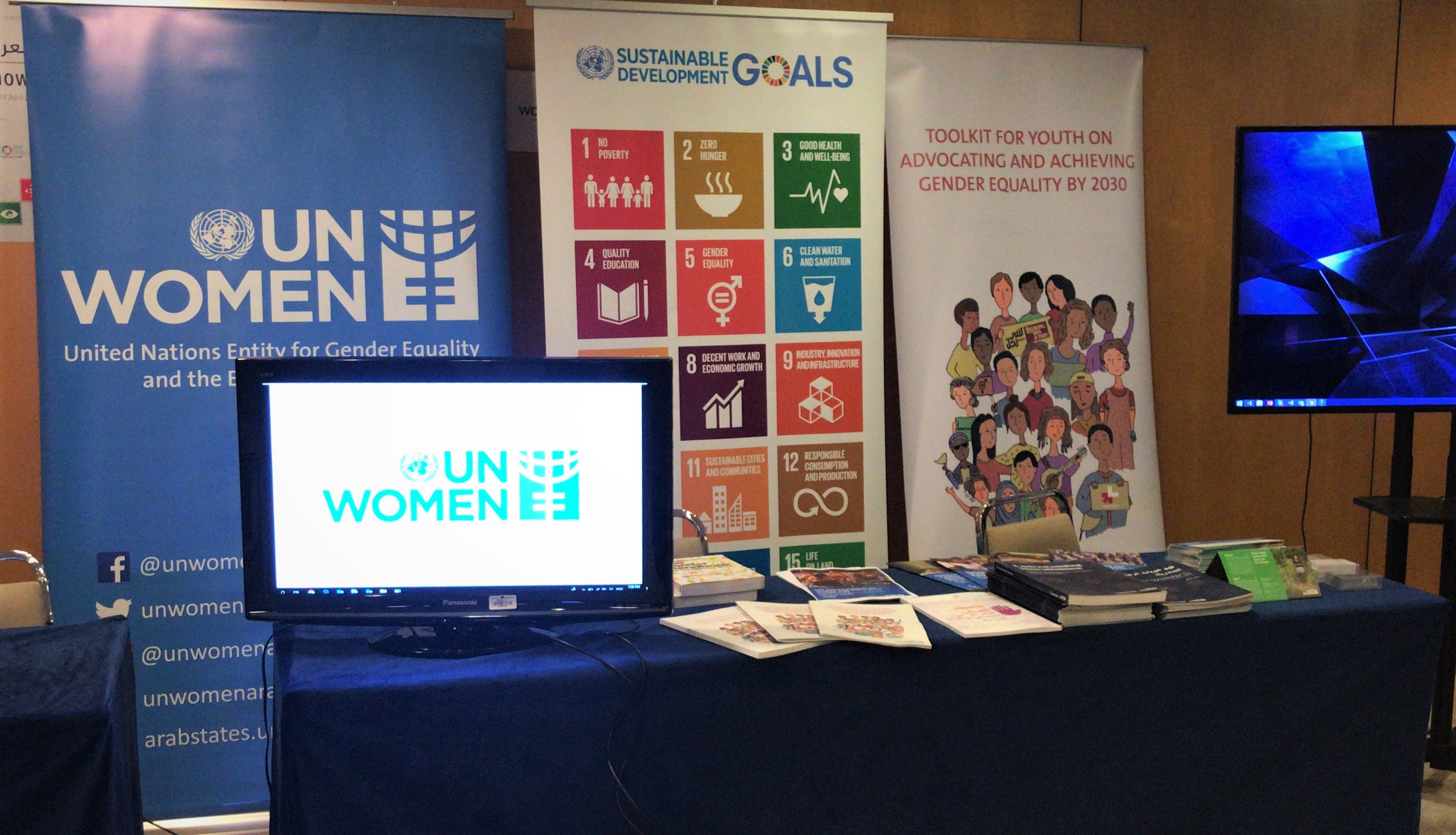
UN Women Regional Office for the Arab States participated in the knowledge fair that was organized during the forum to showcase the outcomes of its work in gender equality and women’s empowerment across the Arab States region.
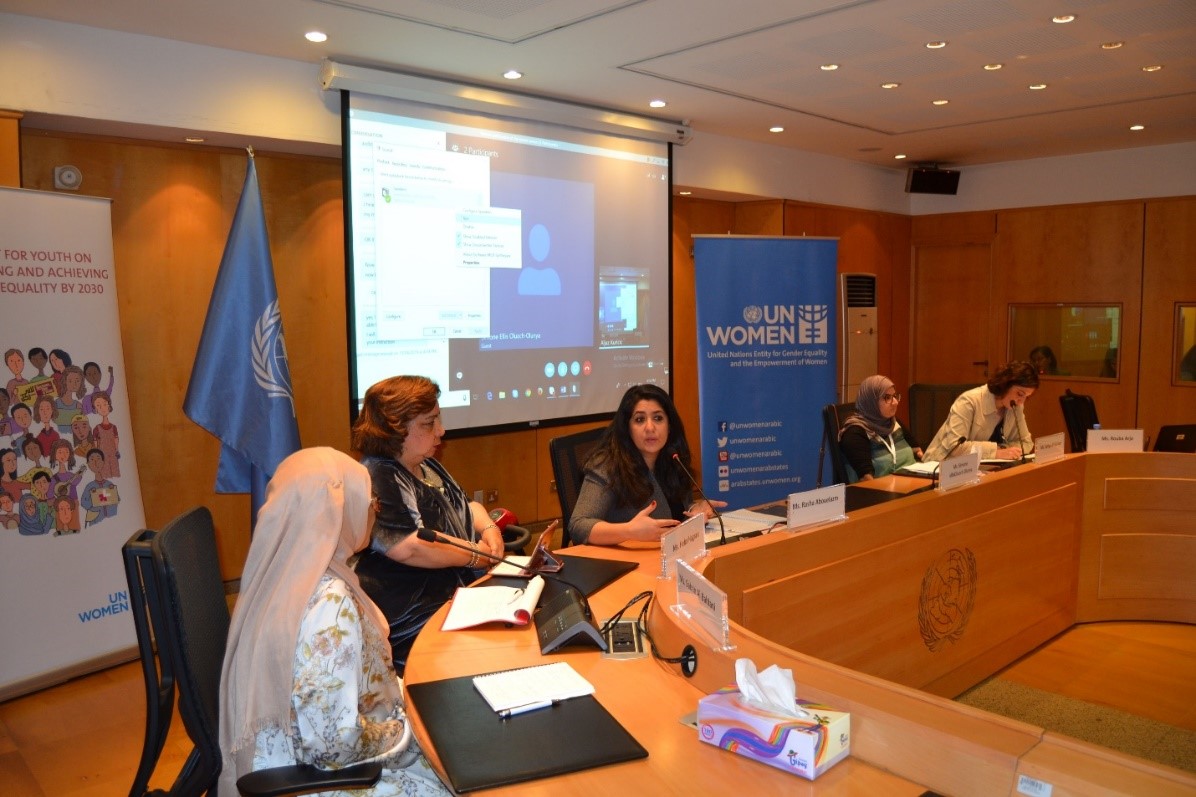
The AFSD-2019 featured a variety of plenary and special session discussions on key topics of relevance to SDG implementation in the Arab States region. UN Women led the organisation of the special session "Leaving No One Behind: Policy approaches to recognize intersectionality and promote inclusivity for women and girls with disabilities in sustainable development”, in partnership with UNFPA, UNICEF, WHO, UNESCO and ESCWA. The session discussed the barriers that put some groups at a higher risk of being left behind. It also highlighted challenges to inclusivity and identified strategies and best practices to ensure those groups enjoy full rights to participate in and benefit from sustainable development. The session drew attention to the contributions of women and girls with disabilities to the implementation of Agenda 2030 and shared best practices, experiences, strategies etc. to ensure that this demographic group is fully included in Agenda 2030 implementation, and opportunities to strengthen interlinkages between policy interventions. “Life will never be without challenges. Take the first step by believing in yourself and use the challenges as your weapon to overcome the obstacles,” said Ms. Safiya Al Bahlani, art gallery founder and advocate for people with disabilities from Oman.
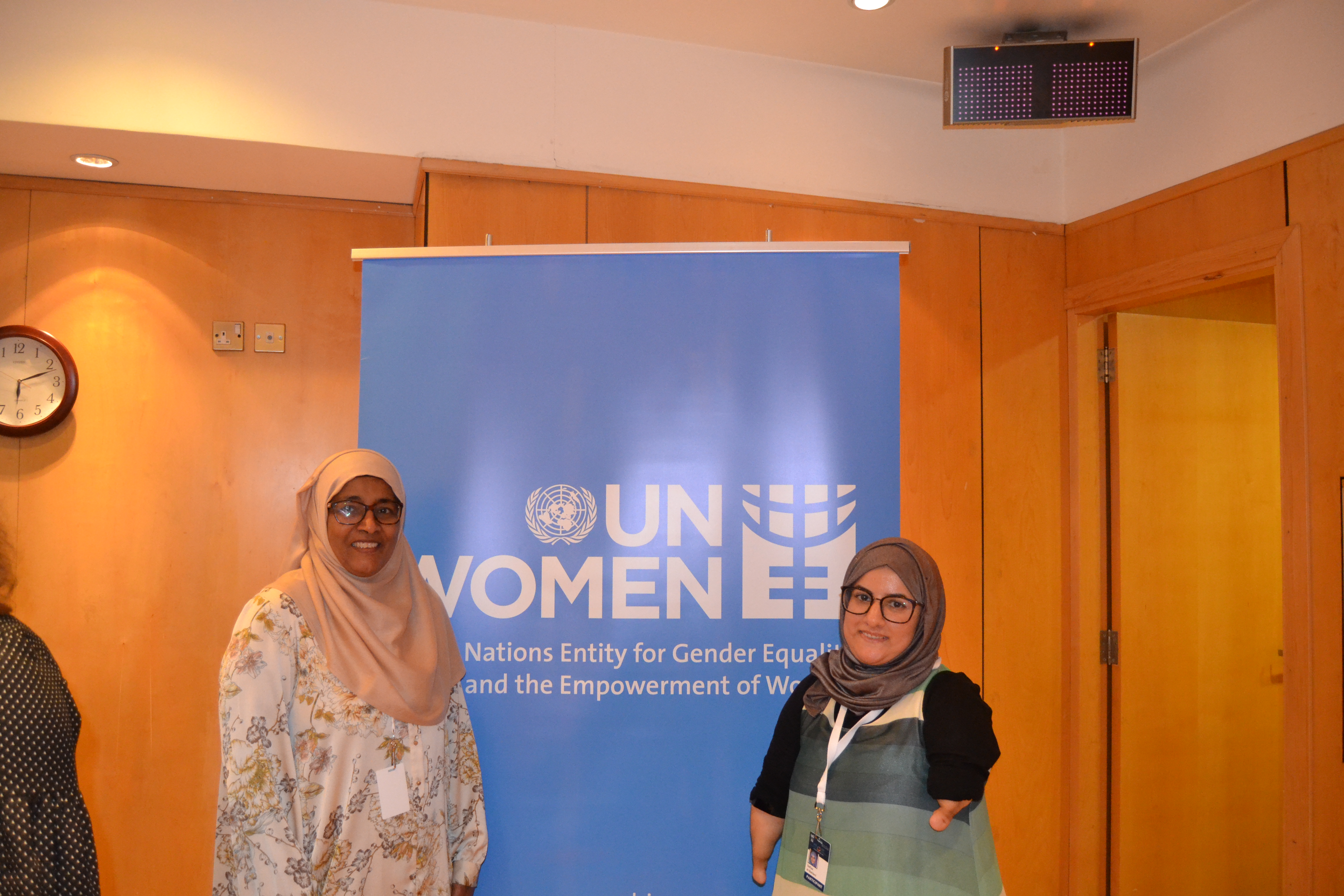
Speaking to UN Women’s efforts to address intersectionality around disability, Ms. Simone ellisOluoch-Olunya, UN Women Regional Women’s Political Participation Advisor, said “we've embraced the UN’s Disability Inclusion Strategy and UN Women's Disability strategy and are taking our first steps towards accelerating their implementation in the Arab States". Ms. Rasha Abouelazm, Men and Women for Gender Equality Regional Programme Manager a.i. at UN Women ROAS noted that "inclusion involves a deep understanding of the root causes of gender inequality. We're addressing masculinity and the engagement of men and boys in achieving gender equality through the IMAGES research across the MENA region."
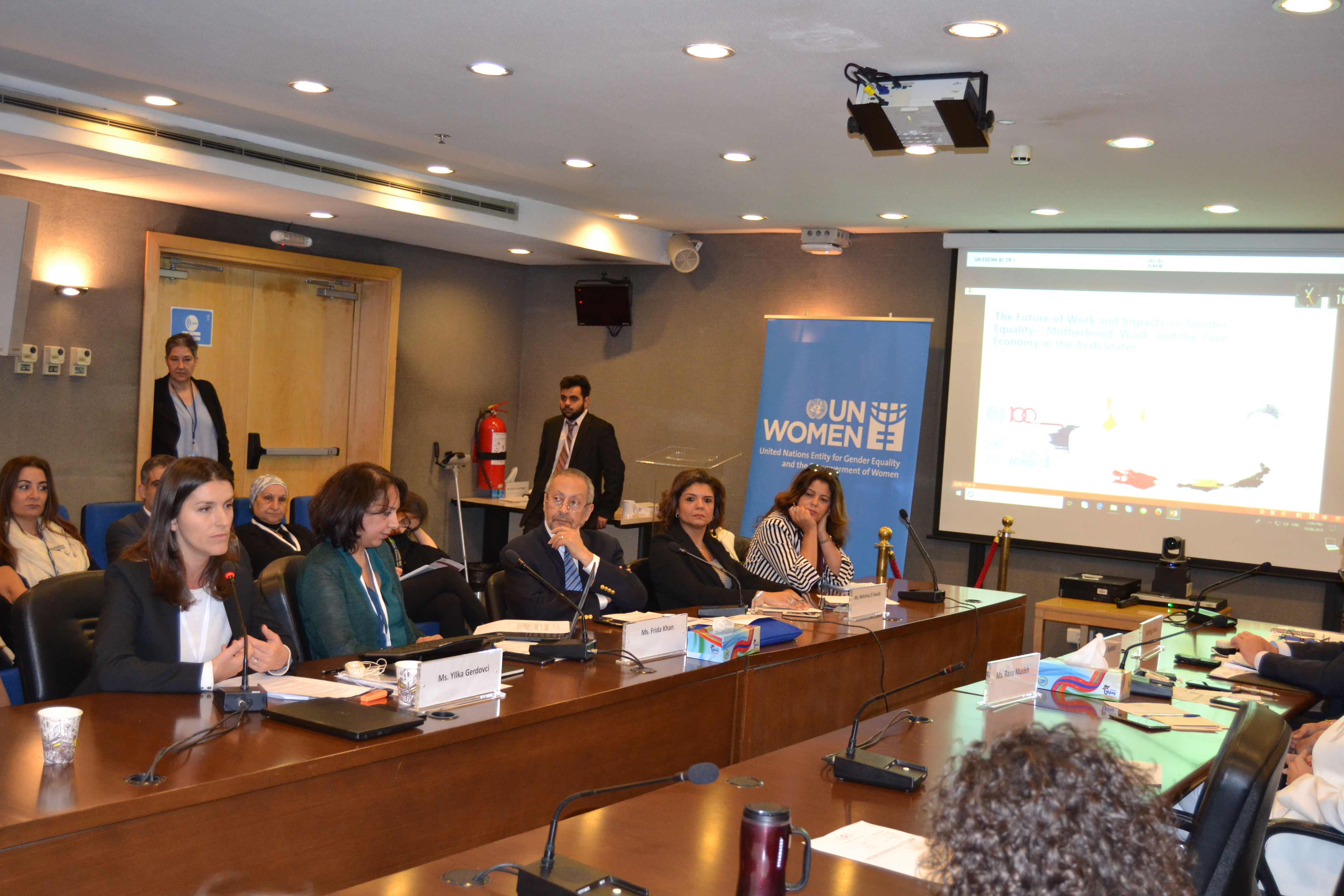
UN Women ROAS participated in a session on the future of work and impacts on gender equality, motherhood, work, and the care economy in the Arab States, convened in partnership with the International Labour Organization (ILO). UN Women took the opportunity to stress on the need to break the stagnation the Arab region has faced in terms of female labour force participation. The session aimed at exploring how the world of work is changing and how that impacts women’s participation and gender equality at work. “Care work is a crucial element for human well-being as well as an essential component for a vibrant, sustainable economy with a productive labour force. Care work ensures the complex and life-sustaining web on which our very existence depends,” said Ms. Yllka Gerdovci, Policy and Programme Specialist at UN Women ROAS.
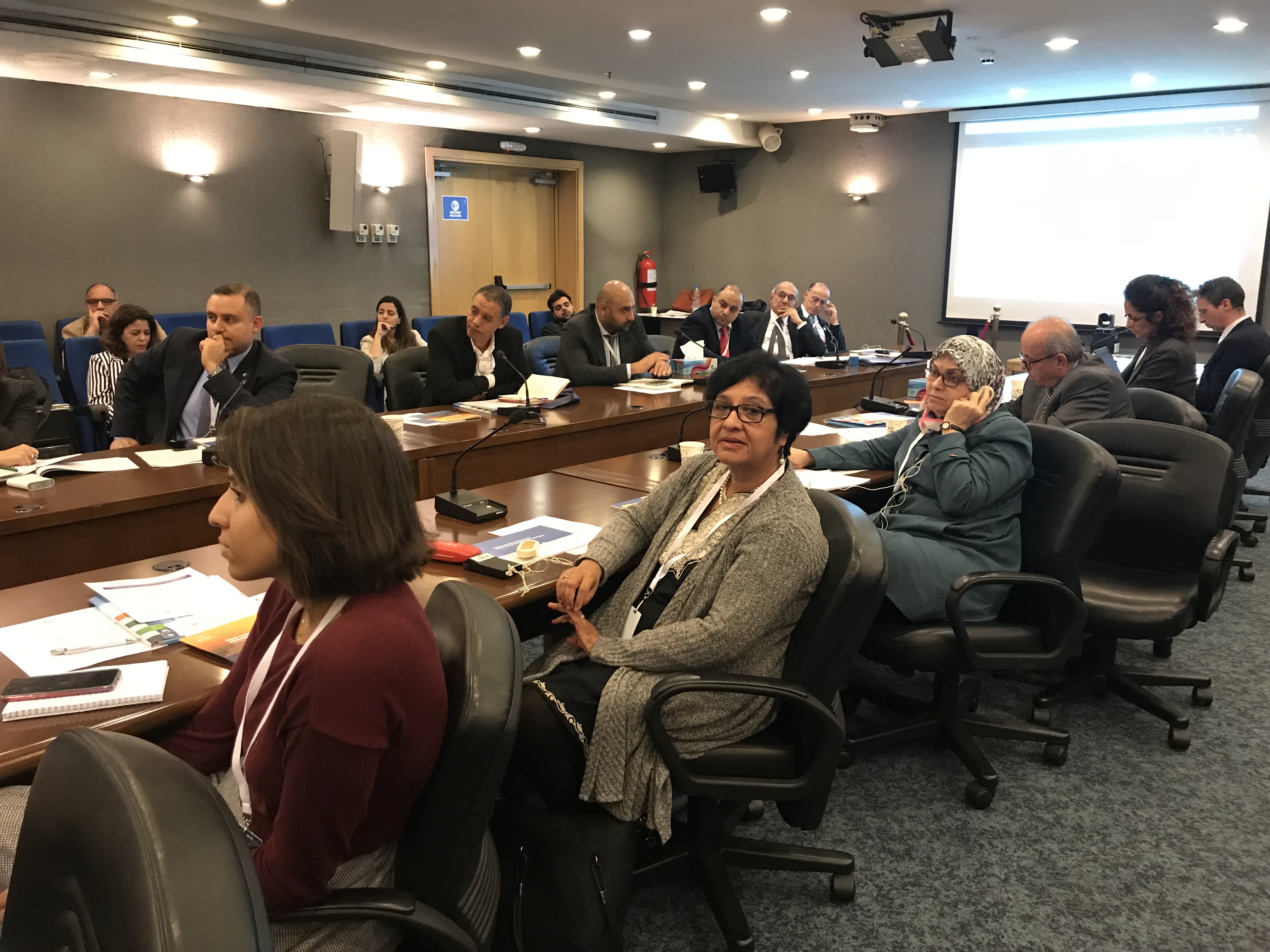
UN Women also contributed to a session on strengthened partnerships to support the coherence of national policies and strategies for disaster risk reduction and sustainable development organized by UNISDR, UNESCWA and UNOPS. The session highlighted the added value of partnerships and an all of society approach to ensuring policy coherence and achieving inclusiveness and sustainable human development. In the words of Ms. Jean D’Cunha, Senior Global Advisor on International Migration, UN Women, “women’s active engagement in policy development and implementation is a normative imperative; women are disproportionately impacted by disasters and can best represent their own interests; given their nurturing and frontline roles they rise above their sectoral interests and make common cause easily with other impacted groups. Investing in women benefits half the population, but also has multiplier effects as it promotes family and community resilience and empowerment.”